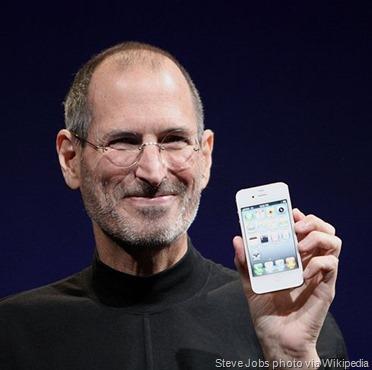 Steve Jobs was a one-in-a-million entrepreneur who seemed to violate many conventional rules of starting a business and dealing with people, yet undeniably achieved great success. According to various reasonably credible reports, including his authorized self-titled biography “Steve Jobs,” by Walter Isaacson, he often ignored customer input, berated team members, and misused key business relationships.
Steve Jobs was a one-in-a-million entrepreneur who seemed to violate many conventional rules of starting a business and dealing with people, yet undeniably achieved great success. According to various reasonably credible reports, including his authorized self-titled biography “Steve Jobs,” by Walter Isaacson, he often ignored customer input, berated team members, and misused key business relationships.
As a result, I don’t recommend to aspiring entrepreneurs that they try to emulate his style as a model for their first startup. I don’t proclaim to understand the genius of Steve Jobs, or how his unconventional approach led to success, but I do know some accepted startup principles that he seemed to go out of his way to violate:
-
Validate your vision with real customers. Steve Jobs once proclaimed, “It's really hard to design products by focus groups. A lot of times, people don't know what they want until you show it to them.” While this approach makes some sense for “paradigm shifts,” most new entrepreneurs can’t survive the high marketing costs, high risk, and long acceptance cycles of big changes. Even Steve Jobs struck out several times with this approach.
-
Nurture business relationships with key industry players. It is a good thing to have strong convictions, but not so smart to actually feud with potential partners. Steve Jobs battles with Bill Gates are legendary, as well as his breakup with John Scully and others. Most successful entrepreneurs learn from relationships without jeopardizing them.
-
Establish trust and communication with your team. Jobs was exceptionally hard on key member of his team, starting with Steve Wozniak. He was prone to emotional outbursts which caused team members to “walk on eggshells” around him, and often not share realities. Management by fear is not a recommended style for business success.
-
Define a solution within the realm of the possible. Bringing innovation and real change to the market does not mean demanding the impossible from your team. Jobs had the reputation of pushing people to “bend reality” through sheer mental force, and it sometimes worked. In my experience, most good teams break and fail under this assault.
-
Look for startup opportunities within your area of expertise. According to Steve Wozniak and others, Jobs did not understand technology and was not an engineer. Yet somehow he was able to drive great engineers to implement his vision of “insanely great products.” For better odds of success and funding, I recommend you chose a domain where your expertise can help you avoid the impossibilities.
-
Don’t hold out for perfection on the first iteration. Jobs’ passion for the perfect solution and the perfect product launch seemed to be the key to his long-term success, but caused him to miss release dates, cost targets, and even markets (with NeXT). For the rest of us, I recommend the minimum viable product (MVP) lean startup approach.
-
Don’t count on multiple failures catapulting you to success. Most entrepreneurs have learned to wear an initial failure like a badge of courage, highlighting what they have learned and destined not to make the same mistake twice. Yet they realize multiple high-visibility failures make it hard to find quality teams, partners, and investors. According to many counts, Steve Jobs suffered at least seven failures, but never lost his credibility, and is still remembered as one of the most successful entrepreneurs of this era.
At the same time, Steve Jobs was a strong advocate of other key startup principles for success, including creating insanely great experiences (not just products), following your heart to do what you love, and thinking differently to produce real innovation. He was also a master marketer who believed in selling dreams, not products.
The bottom line is that every entrepreneur is unique, and there is no magic formula for success in business. Thus the more you know about yourself, the market, and technology, the more likely you will be able to achieve success. Steve Jobs didn’t want to follow conventional principles, but he also didn’t believe in going into business with blinders on. That’s a model for all of us to follow.

